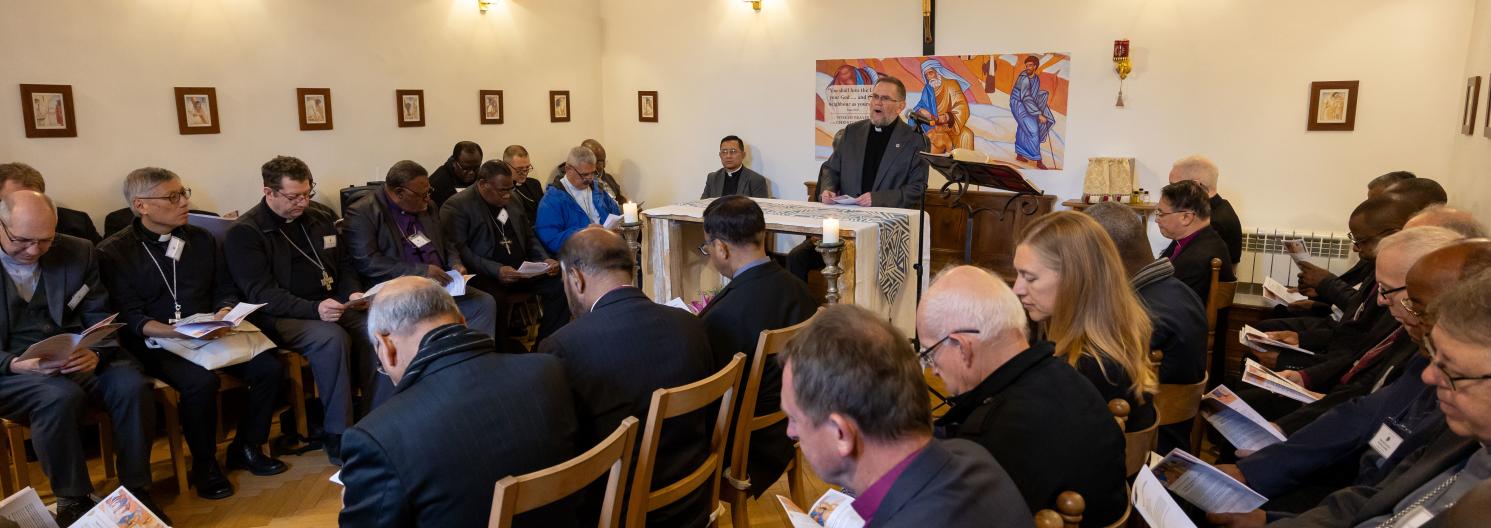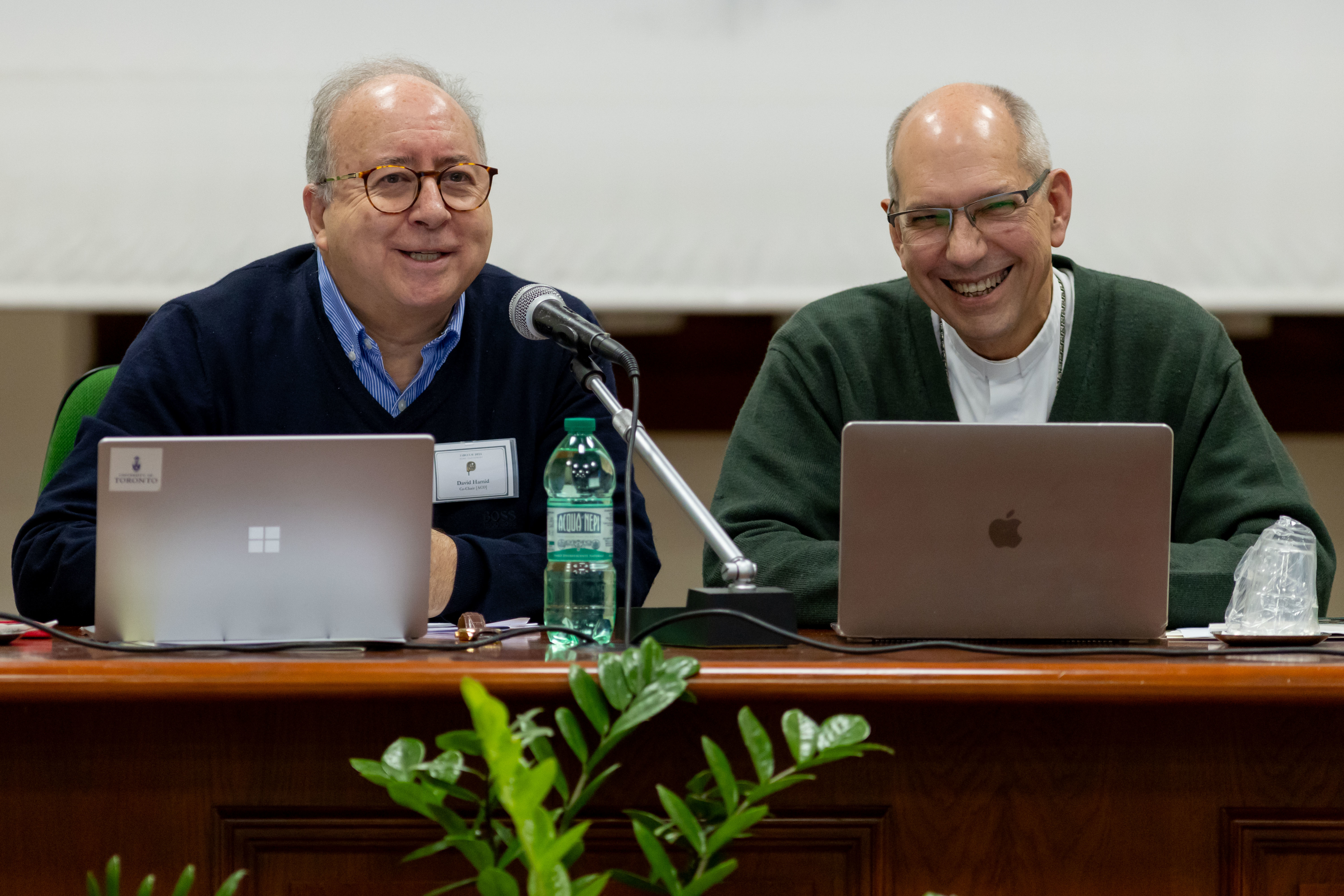Bishop Robert's monthly letter | Edition 3

I write this message as the annual Week of Prayer for Christian Unity draws to a close. This ‘Week’ is taken more seriously in our diocese than many or most English dioceses. Perhaps that is because in Europe we are always a minority church. We sense more keenly our need for partnership with bigger churches for local knowledge, the use of buildings, or even the registration of our legal status. The ‘Week of Prayer’ is an annual focus for our friendships and joint working. Across the Diocese, there have been special services of worship, opportunities for fellowship and newspaper or even television interviews on the theme of Christian Unity.

Pictured: Co-Chairmen David Hamid Suffragen Bishop in Europe (England) and Donald Bolen, Archbishop of Regina (Canada) introduce the opening session of the IARCCUM Summit - Growing Together at the Casa Bonus Pastor in Rome. Photo: Neil Turner for IARCCUM. 23 January 2024
I have been privileged to spend ‘the Week’ on a pilgrimage from Rome to Canterbury as part of the ‘IARCCUM summit’ chaired by the Roman Catholic Archbishop Don Bolan and our own Bishop David. The great highlight of this pilgrimage was a service of commissioning of Anglican and Catholic bishops on the feast of the Conversion of St. Paul at the huge Roman basilica of St. Paul’s Outside the Walls, by the Pope and Archbishop of Canterbury in front of a large congregation including many cardinals and orthodox hierarchs. It was a striking and highly visible symbol of the commitment of the Roman Catholic church to the cause of unity with the Anglican Communion.
In discussions about Christian Unity it is quite usual for the public interest to be on the things about which we disagree. It is not difficult to find these – indeed Christian communities have disagreed about one thing or another since the time of St. Paul.
The approach of IARCCUM is by contrast to build on all the things on which we agree. When we do that, we realise we have a very large degree of faith in common – starting, with our common baptism and our creeds. But the key point is that there is a huge gap between the great extent of our theological communion with each other and the degree to which we actually live that out. Between Anglicans and Catholics there is a real, albeit incomplete, communion. Building on that real but incomplete communion isn’t a matter of compromise or negotiation but of walking together and discovering unrealised potential.
In our diocese, this can include things like joint working on humanitarian corridors for refugees. It can mean sharing our spiritual and physical resources: ‘fresh expressions’ of being church, alpha courses, premises or joint commitments in the big public issues like peacebuilding and climate change.
In John’s gospel, Jesus says ‘I call you no longer servants but friends’. It is on the basis of shared faith and friendship that Christian unity grows and flourishes. This means taking the time, effort and sometimes courage to cross barriers of culture and language and to make friends. We do this not only or mainly for the sake of the church but for the sake of our witness in the world. Jesus prays: ‘may they be one…so that the world may believe that you sent me.’
In a secular, divided and polarised world, joint and shared Christian witness is necessary and powerful. To be frank, the effect when we fail to do this can be catastrophic: centuries of European warfare up to and including the tragic war in Ukraine have been fuelled by division between Christians. So let’s continue to work for unity between Christians – not just for one week in January but the whole year round. For, as the psalmist reminds us: ‘How good and pleasant it is when brothers and sisters live together in unity’.
+Robert Gibraltar in Europe